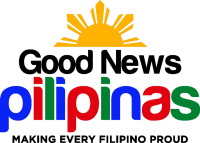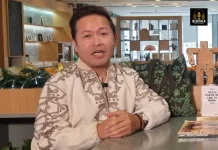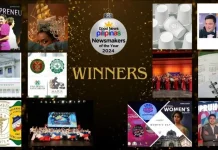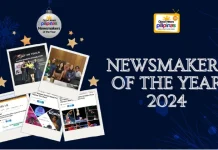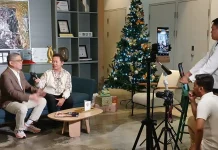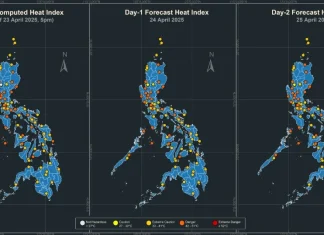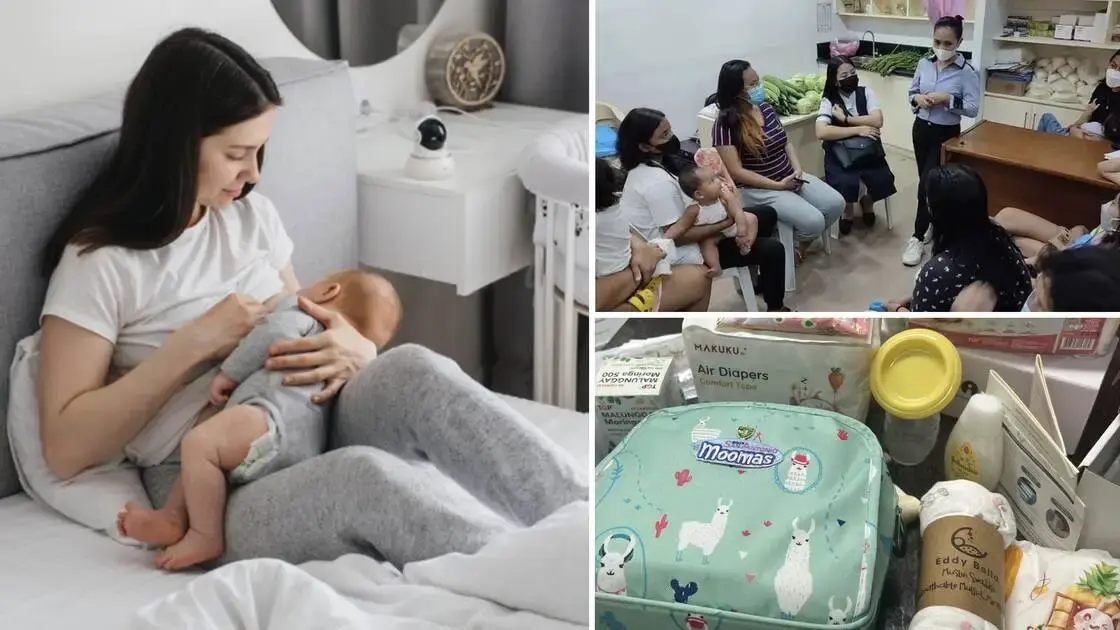
A child’s health is truly the heartbeat of every community. Celebrated every November 20, World Children’s Day uplifts the well-being of youngsters all around the globe, ensuring that all receive the support and resources needed to become thriving members of society. As each baby is birthed into the world, breastmilk is the starting point in equipping infants to evolve into our nation’s strong and capable leaders.
In times when parents cannot breastfeed their children on their own, selfless mothers like Jhoy Garde step in to donate their excess breast milk. “Alam ko na kasi yung feeling na disappointed ka and at the same time pressured ka to produce milk for your baby (I already know the feeling that you are disappointed and at the same time you are pressured to produce milk for your baby),” she conveyed. “Knowing that kind of situation, I ought to donate and share my stash of milk to those babies who are in need.”
A mom of two, Garde is a breastmilk donor in Barangay San Antonio, Pasig City’s “Gatas ni Mommy, Ayuda for Family” project – one of the elements of the barangay’s broad breastfeeding initiative. As a new mother, she suffered the emotional toll of not being able to breastfeed her firstborn, wrestling with feelings of guilt and helplessness. “I [was] the one asking for milk [then],” she said. “I wasn’t able to provide enough milk for my baby.”
Things fortunately turned around for her with the birth of her second child. Now achieving greater success in breastfeeding, Garde committed to donating her surplus milk to support other mothers. She shared, “I experienced it myself eh, yung feeling na frustrated ka kasi wala kang mabigay na milk for your baby (I experienced it myself, the feeling of being frustrated because you can’t give milk to your baby). I don’t want [more] moms to feel that way.”
Awarded the best barangay in the implementation of the Infant and Young Child Feeding Program in 2022, San Antonio’s breastfeeding program allows mothers to receive or donate breastmilk, use their in-house breast pumps, consult with a lactation coach, attend breastfeeding seminars, receive lactation aids, and more.
“Hangga’t meron, hangga’t kaya, I am very much willing to share my milk with those babies and I’m just so lucky that I have a community that supports this kind of advocacy,” she declared.
(As long as there is milk and as long as I can, I am very much willing to share my milk with those babies and I’m just so lucky that I have a community that supports this kind of advocacy.)
Behind the Process
Garde discovered San Antonio’s breastfeeding program when she enlisted in the barangay’s prenatal care services during her second pregnancy. For her first pregnancy, she had initially sought out her prenatal care from private hospitals. However, when she couldn’t find an open clinic on a Sunday, she turned to the barangay health center.
“Dun ko [napansin] kung gaano kaganda yung procedure[s] natin sa Barangay San Antonio (That’s when I noticed the beauty of our procedure[s] in Barangay San Antonio),” she stated. In the health center, pregnant women can book free routine checkups and register for necessary prepartum vaccinations. If they complete a minimum number of consultations before and after their pregnancy, they receive a Mooma Bag with a portable breast pump, diapers, soap, baby wipes, a swaddle, and more; mothers who donate milk are also eligible.
With an oversupply of breastmilk from her second child, Garde reached out to the barangay for a possible donation and underwent several tests to qualify for the program. “In exchange for my milk, they gave me rice [and] the milk storage for the breastmilk,” she recalled. “Aside from that, they also gave malunggay capsule[s] para masustain ko yung milk supply (Aside from that, they also gave malunggay capsule[s] so I could sustain the milk supply).”
Uniquely, the “Gatas ni Mommy, Ayuda for Family” project offers donors 10 kilos of rice for every 100 ounces of breastmilk. “We know naman how expensive the rice is now so it really helps my family,” she said. “[The barangay] also includes me [sa] pakain nila every day for the breastfeeding [moms], pregnant [women], and all the malnourished kids.”
(We already know how expensive the rice is now so it really helps my family. [The barangay] also includes me in their feeding program every day for the breastfeeding [moms], pregnant [women], and all the malnourished kids.)
She added that the barangay’s postnatal massages also help with maintaining the production of her breastmilk, complementing the lactation consultations she attends in the barangay. Mothers in San Antonio can participate in weekly consultations with breastfeeding coach Lorena Rivera. “Nagbibigay ko ng counseling ang mga mommy [on] how to breastfeed properly, para mas malawak pa yung kaalaman nila at mas tumagal sila [sa pagbi-breastfeed] (I give counseling to mommies [on] how to breastfeed properly so that their knowledge expands and they breastfeed longer),” Rivera mentioned.
“Nagpupunta rin [kami] sa bahay-bahay para bisitahin yung mommy… para lang kahit papano hindi lang dito lang ([We] also go from house to house to visit mommies… so that our sessions don’t just end here in the barangay office),” she noted. Her guidance has helped hundreds of babies receive essential nutrition – including Garde’s secondborn. Rivera also helps correct possible challenges that arise with breastfeeding, like blocked milk ducts, improper positioning, and latching issues. “Parang family ko na din [sila] (They’re like my family),” she said.
Benefits of Breastfeeding
https://twitter.com/GoodNewsPinas_/status/1724593111827956077
Breastfeeding fosters a unique and intimate connection between mothers and children, providing a vital foundation for their health. “Buhay na gatas ito. So, hindi lang siya pagkain ng baby, gamot din siya (This is living milk. It’s not just food for the baby, it’s also medicine),” Rivera stated.
“Sabihin na natin na ang baby may sipon… Pag direct latch, s_yempre nararamdaman yun ng katawan ng_ mommy [kasi] yung laway niya, pwede kasing pumasok doon sa mga pores ng nipple ng mommy. And then magbibigay ng signal sa katawan ng mommy na mag-create ng antibodies para pangontra,” she continued. “Ito yung kakaiba talaga na regalo ng Diyos.”
(Let’s say the baby has a cold… When there’s a direct latch, of course, the mommy’s body feels that [because] the baby’s saliva can enter the pores of the mommy’s nipple. And then it gives a signal to the mommy’s body to create antibodies to counter the cold. This is a really unique gift from God.)
She explained, “Sa latching t_alaga, mas nakakakuha ng_ nutrients ang baby doon kasi nag-iiba-iba [ang mga chemicals_]. Hindi pare-parehas. Kunwari, [kung] ang_ baby ay gini-ginaw, nagcchange yung breastmilk [at] gumagawa siya ng mas creamy na milk.” While direct latching is the most ideal, Rivera mentioned that collected breastmilk remains nutritious for babies; it is the most ideal option for many mothers especially as some cannot produce milk on their own.
(With latching, the baby gets more nutrients there because [the chemicals] are different. They’re not the same. Let’s say [if] the baby is cold, the breastmilk changes [and] it produces a creamier milk.)
Beyond this, breastfeeding creates an emotional bond between the two. She emphasized that nursing’s skin-to-skin contact enhances the baby’s five senses. “Hindi siya katulad sa bottle feeding na ibibigay mo na lang [yung gatas]. Iba pa rin talaga pag naha-hug mo yung baby (It’s not like bottle feeding when you just give the milk. It’s different when you hug the baby),” she described.
On the other hand, the oxytocin hormone produced by breastfeeding helps mothers become more calm and nurturing – facilitating more rapport between the two. Rivera furthered, “Hindi naman nawawala ang stress_, lalo na pagka ang baby umiiyak. Pero habang nagpapabreast-feed [ka], parang ang saya ng_ feeling (The stress doesn’t go away, especially when the baby cries. But while [you] are breastfeeding, you feel happy).”
With this, Rivera contended that the advantages of breastmilk pale in comparison to that of formula. With fixed ingredients, formula milk cannot offer children the tailor-made health benefits of breastmilk. Furthermore, the processing methods of formula milk do not fully preserve its nutritional content; as companies add extra vitamins to compensate for this, the proteins in formula milk can be difficult for babies to swallow. “Pag sa breastfeeding, talagang exacto yung kanyang protein… para madaling madigest and na-a-absorb talaga sa katawan [ng baby](When breastfeeding, the protein is really accurate… so that it can be easily digested and absorbed by [the baby’s] body),” she elucidated.
The Joys of Giving
Garde’s milk was ultimately given to sick infants in the Neonatal Intensive Care Unit – a specialized branch of a hospital that concentrates on babies with critical health issues, such as prematurity. “It’s very fulfilling [to donate], kahit sabihin mo nakakapagod,” she narrated. Pumping milk is notoriously time-consuming and can lead to various sleep disruptions; donating mothers must also ensure that a healthy diet sustains the quality of their milk. “It’s additional work eh, kasi kailangan syempre na maayos din yung idodonate mong milk.”
(It’s very fulfilling [to donate], even if you could say it’s tiring. It’s additional work because of course, the milk you donate must be of quality.)
Despite its challenges, Garde is elated that she was able to help families facing adversity. “Alam ko na it would help their child to be stronger and at the same time, it will help their mom not to be guilty of the feeling na they couldn’t give enough milk for the baby,” she remembered.
(I know that it would help their child to be stronger and at the same time, it will help their mom not to be guilty of the feeling na they couldn’t give enough milk for the baby.)
To promote San Antonio’s lactation program, she suggested that the barangay conduct additional seminars to uphold the morale of mothers to breastfeed. She further recommended, “It would also help if there are more workshops para lang malaman ng mga mommies yung do’s and don’ts in donating the milk (It would also help if there were more workshops so mommies would know the do’s and don’ts in donating the milk).”
Recalling her own experience in supporting Barangay San Antonio’s mothers, Rivera noted that maintaining ongoing dialogue with patience goes a long way. “Pwede rin natin e-encourage din yung mga health workers [para] makapagbigay pa sila ng gabay sa mga nanay (We can also encourage health workers to give more guidance to moms),” she proposed.
Moving forward, Garde sees a bright future for breastmilk donations. “Marami nang [mga] breastfeeding advocate and if you join the [support] groups, talagang mamomotivate ka to donate milk kasi talagang maraming mommies na in need,” she imparted.
(There are a lot of breastfeeding advocates already and if you join the [support] groups, you would really be motivated to donate milk because there are a lot of mommies in need.)
In this, Garde’s generous donation to the children of Barangay San Antonio truly encapsulates what citizen-led community action is all about. As netizen Eric Angeles put it in his comment about a GoodNewsPilipinas social media post, “Filipinos must realize that good governance involves every citizen. We cannot leave it all up to the leaders after [the] election… Know what wrongs are happening to your country, and be part of the solution.”
From being a breastmilk beneficiary to a donor, Garde now hopes to inspire other mothers to donate milk. “Masaya siya sa puso (It makes your heart happy),” she affirmed.
Good Governance Project
Good Governance is a series on Good News Pilipinas that celebrates positive government programs just like this one! Interested in learning more about other uplifting initiatives? Discover what the rest of the series has in store by following this link!
Good News Pilipinas is a Lasallian Scholarum Awardee. Engage with us, share your experiences, and be a part of the positive community shaping the Philippines today and tomorrow. For more information and stories that fill us with pride or to share your good news story tips, message us on Facebook, Twitter, or Instagram, or e-mail editor@goodnewspilipinas.com

